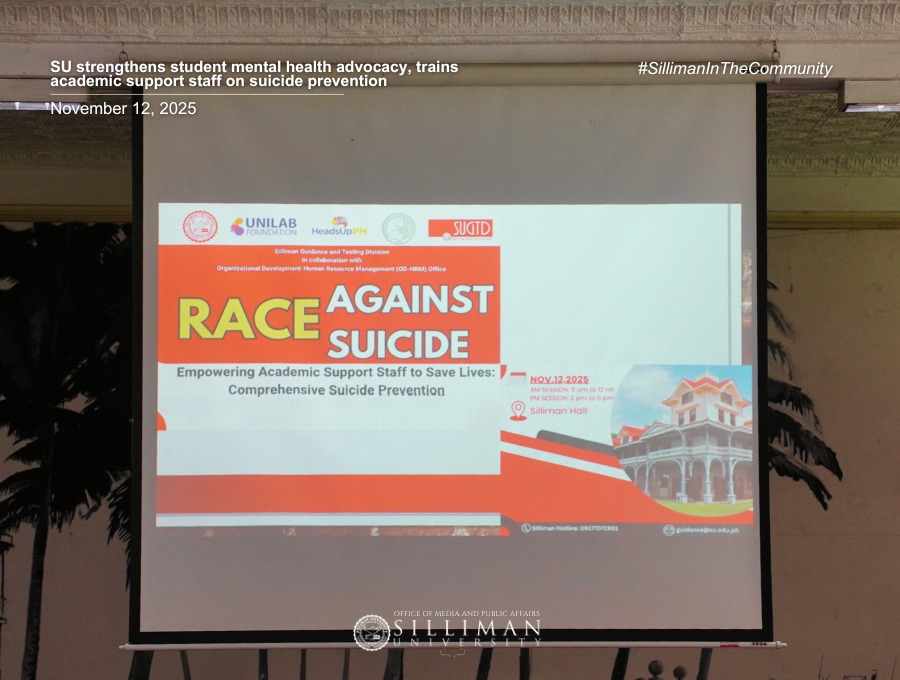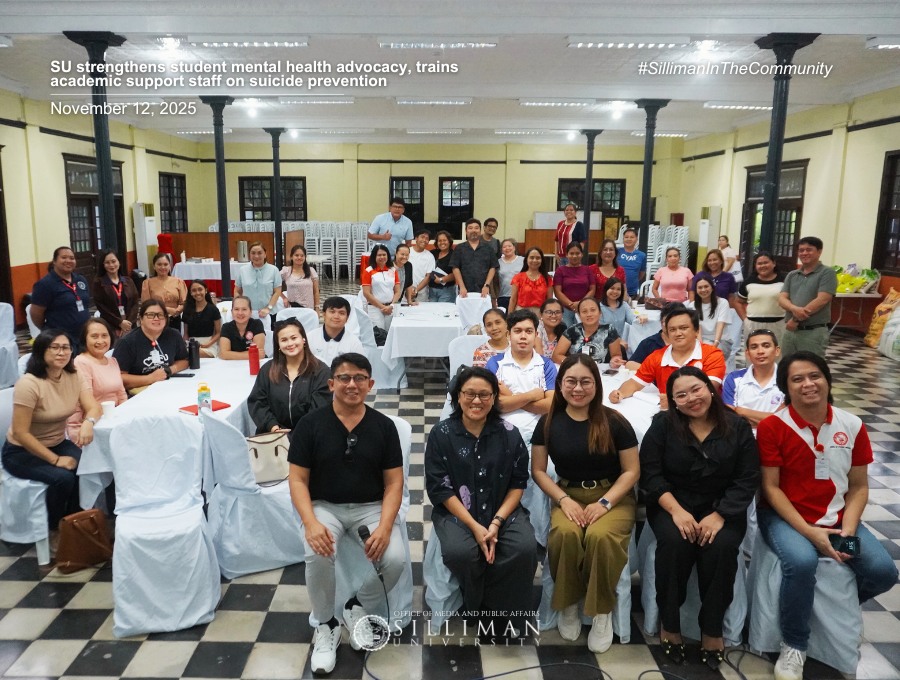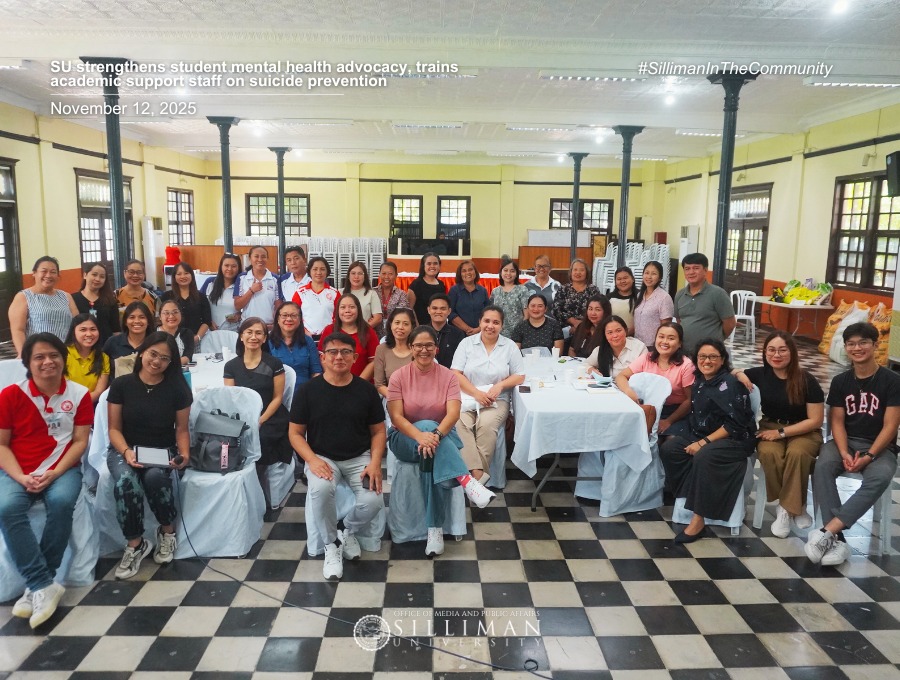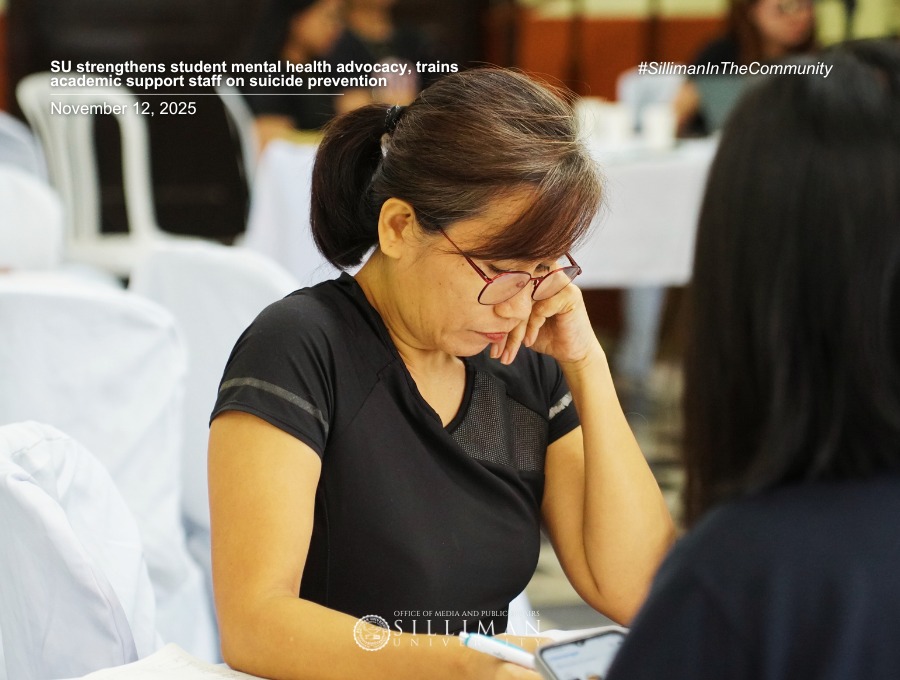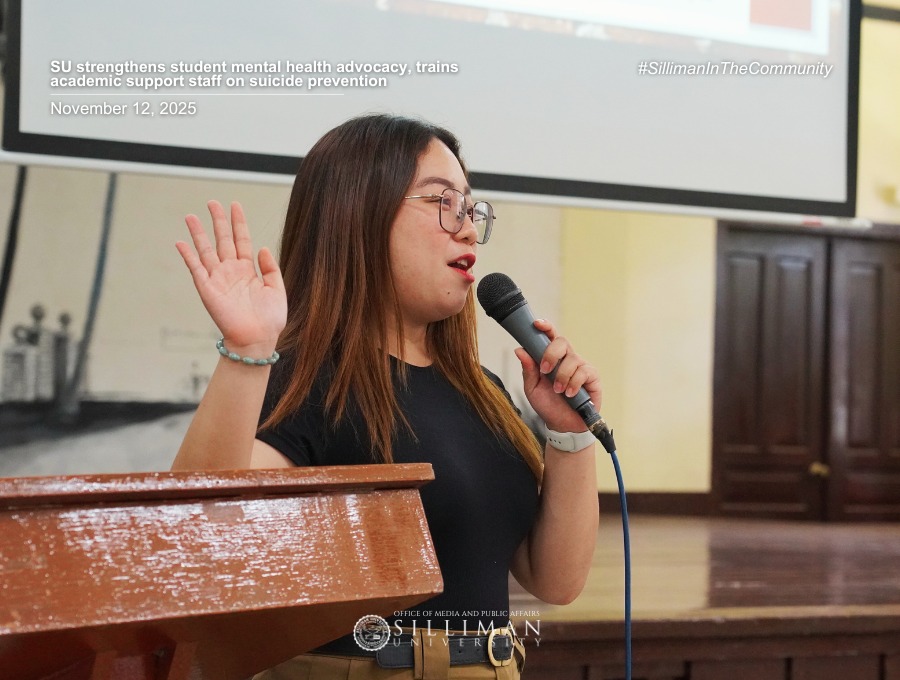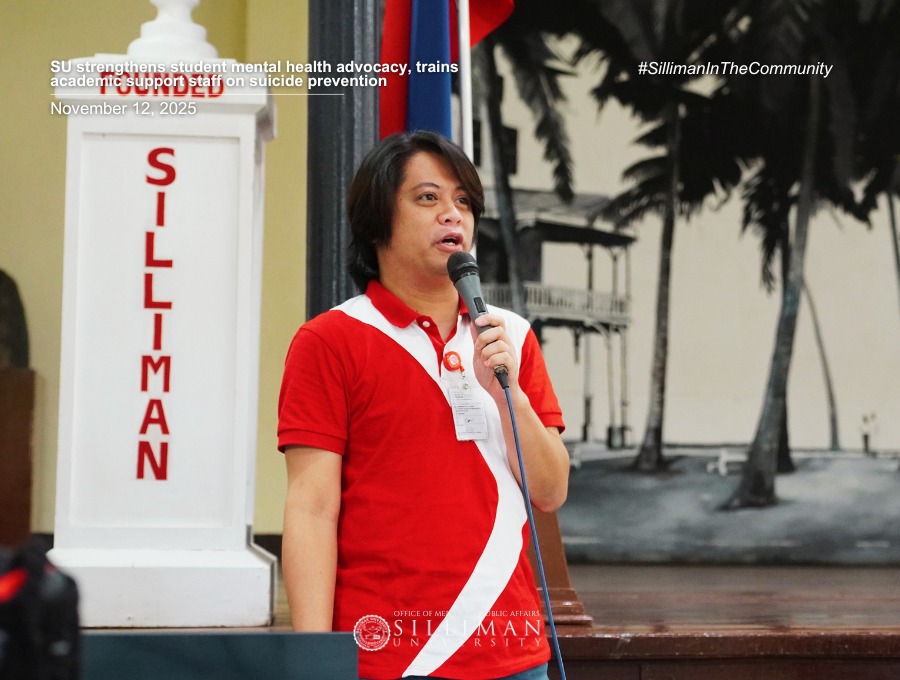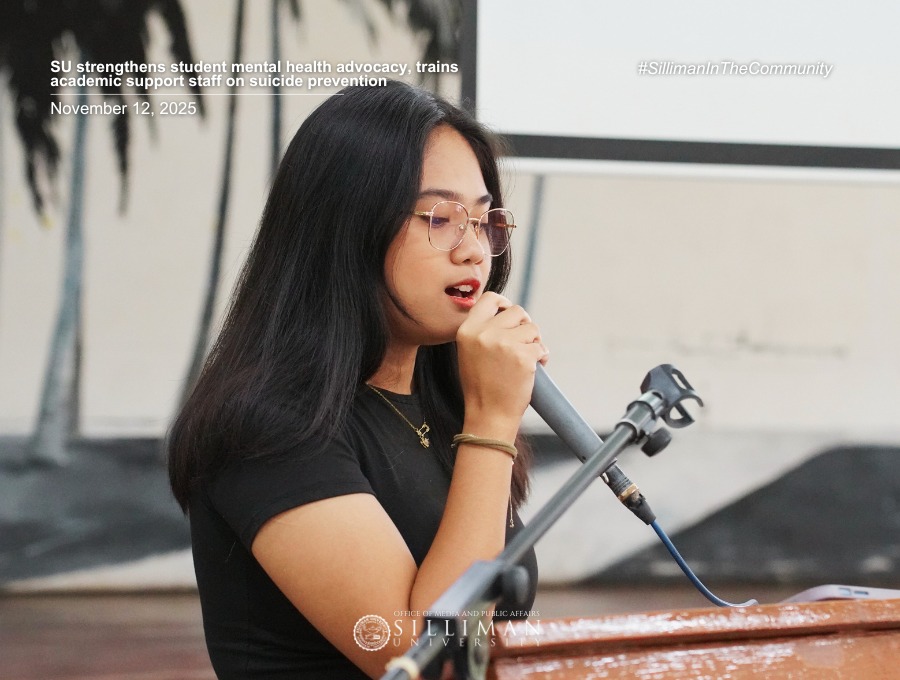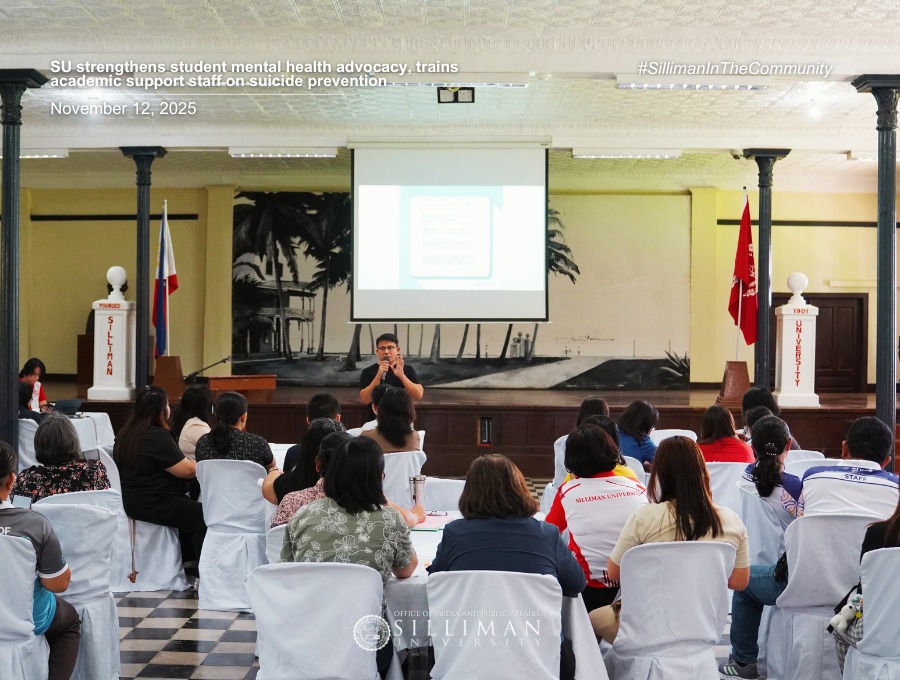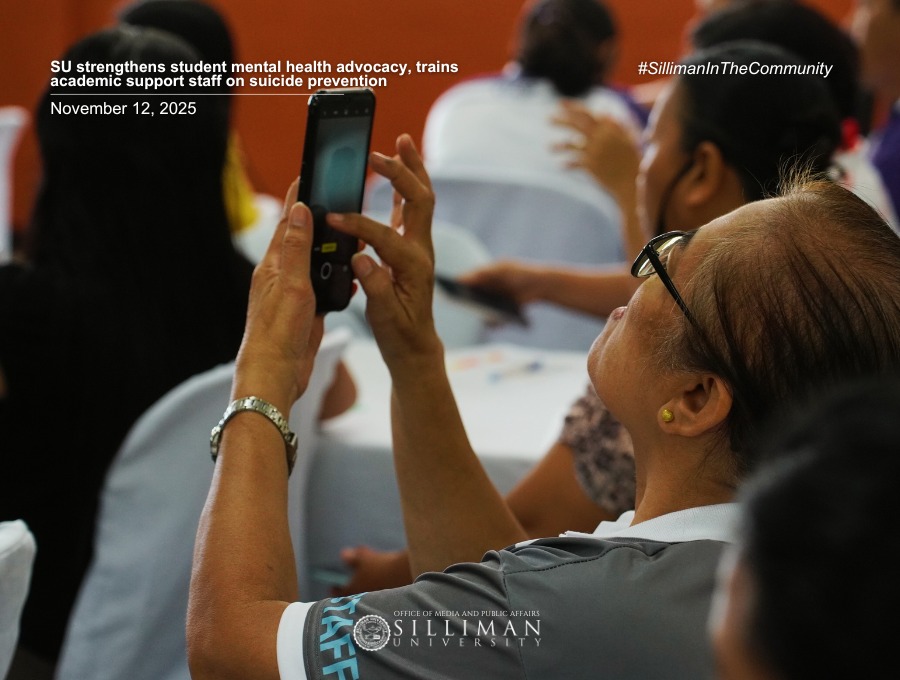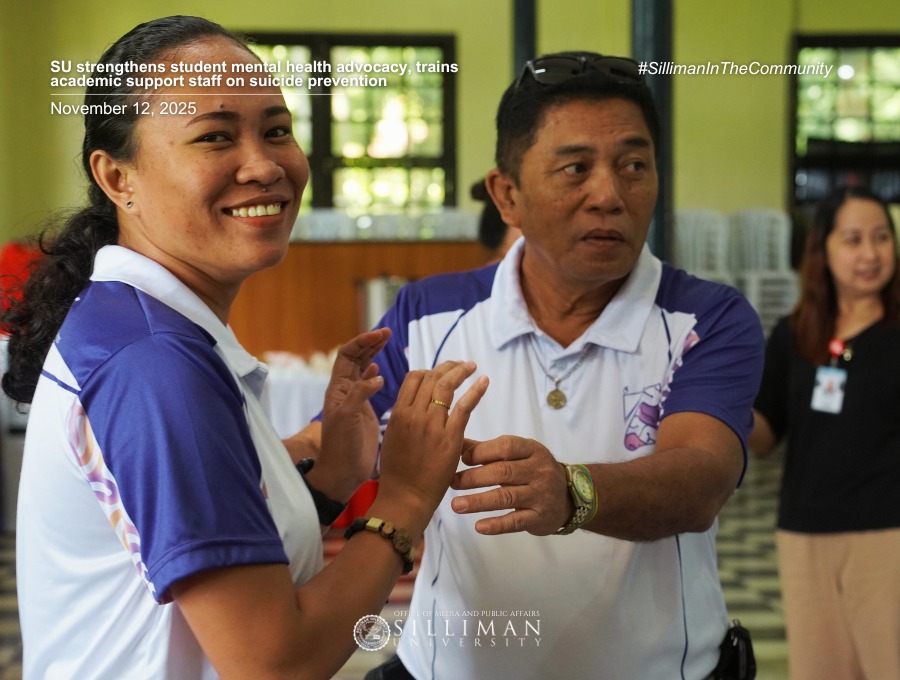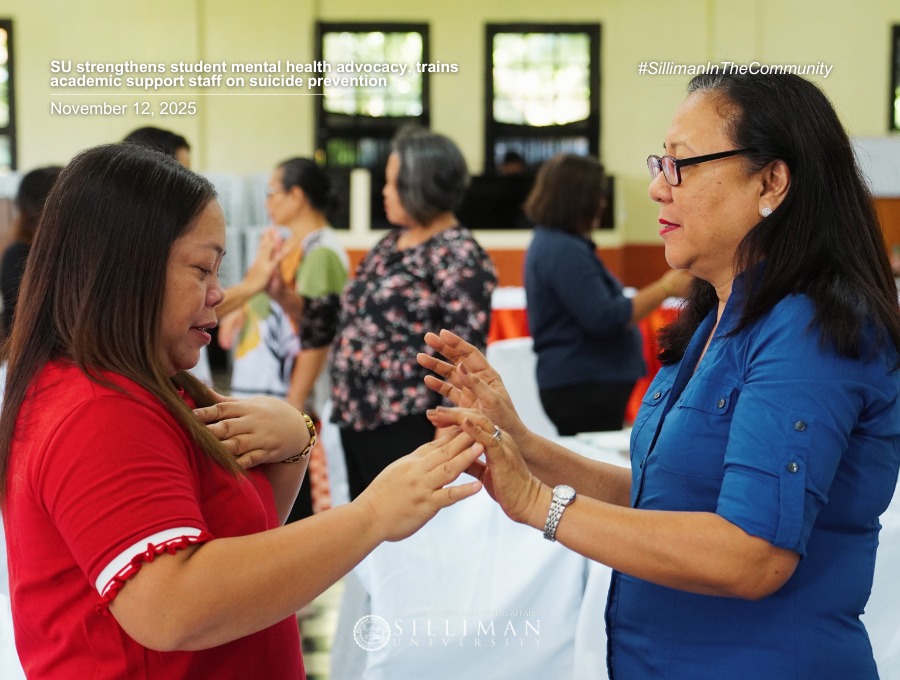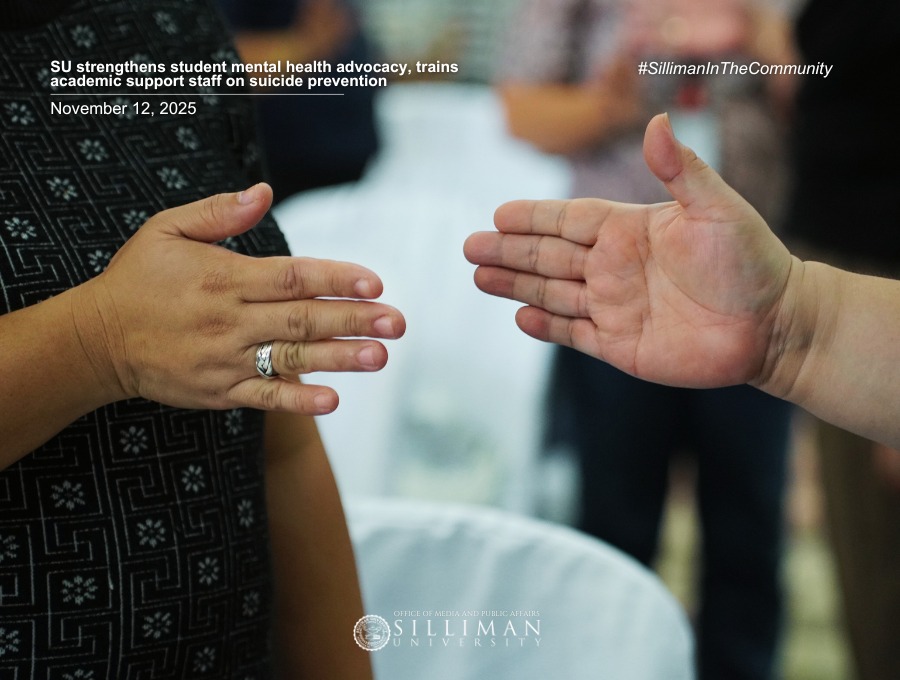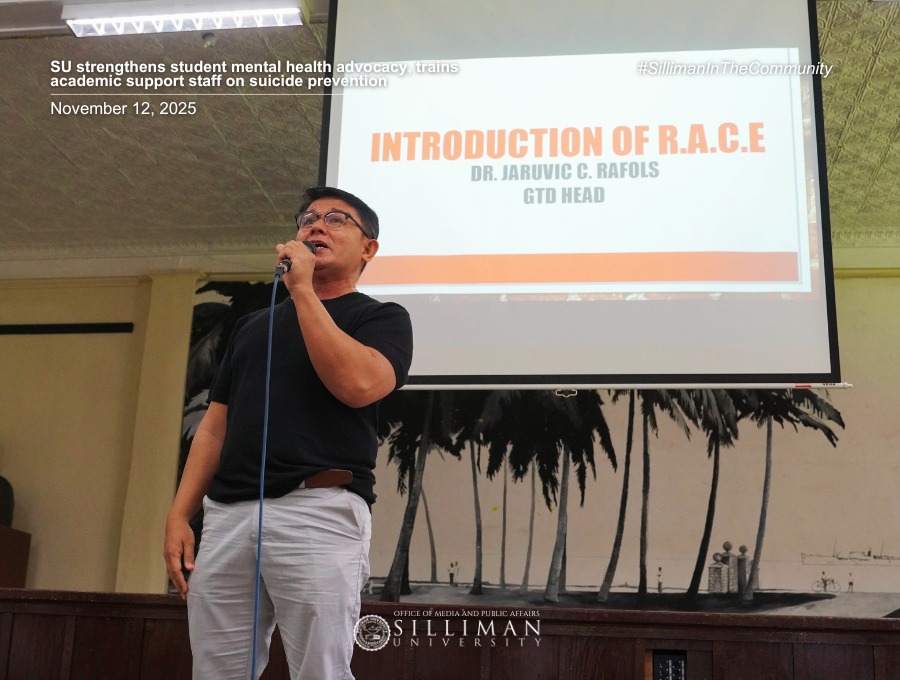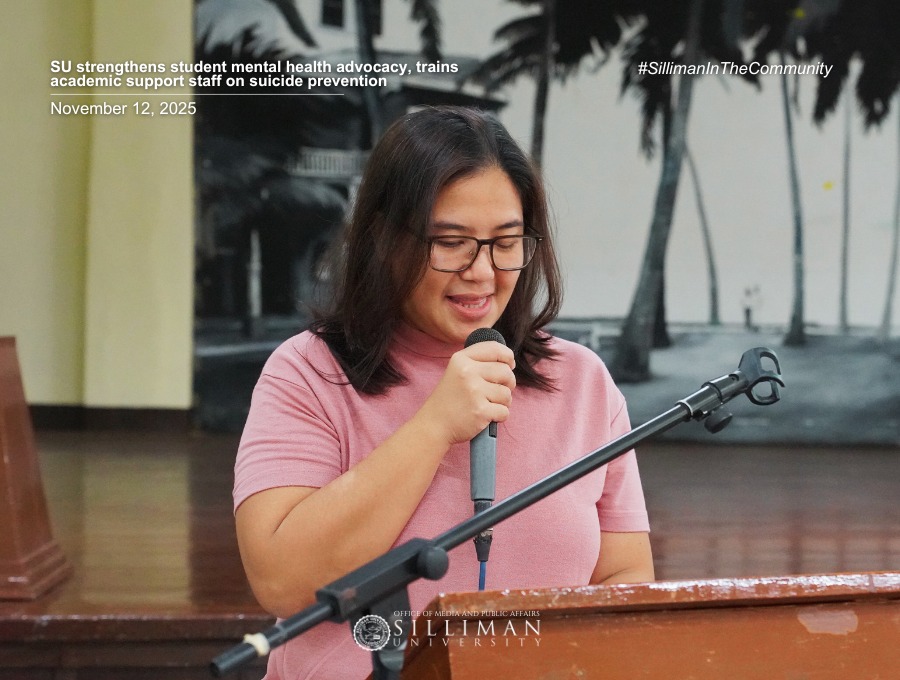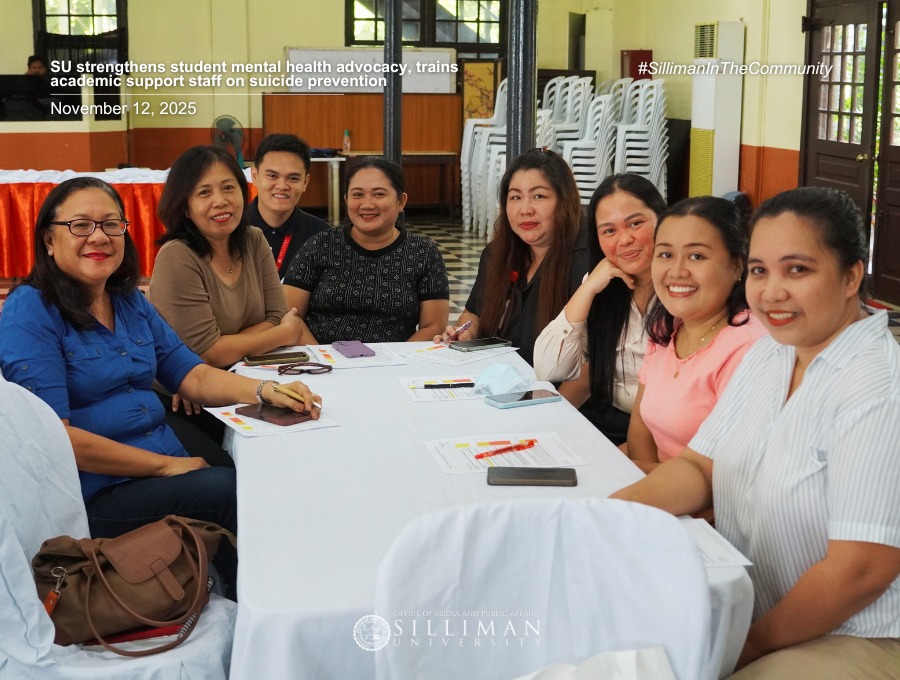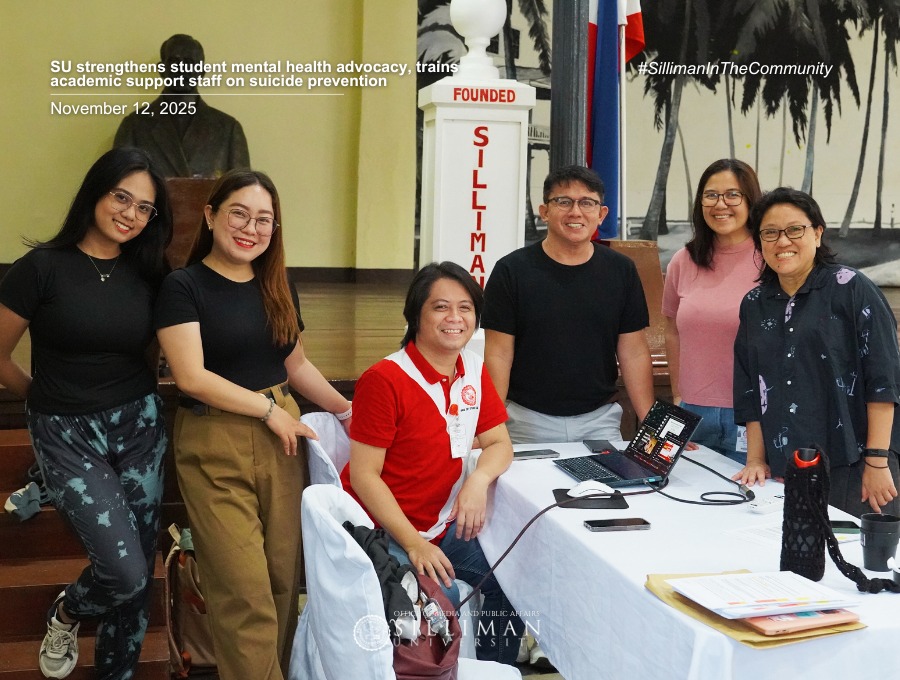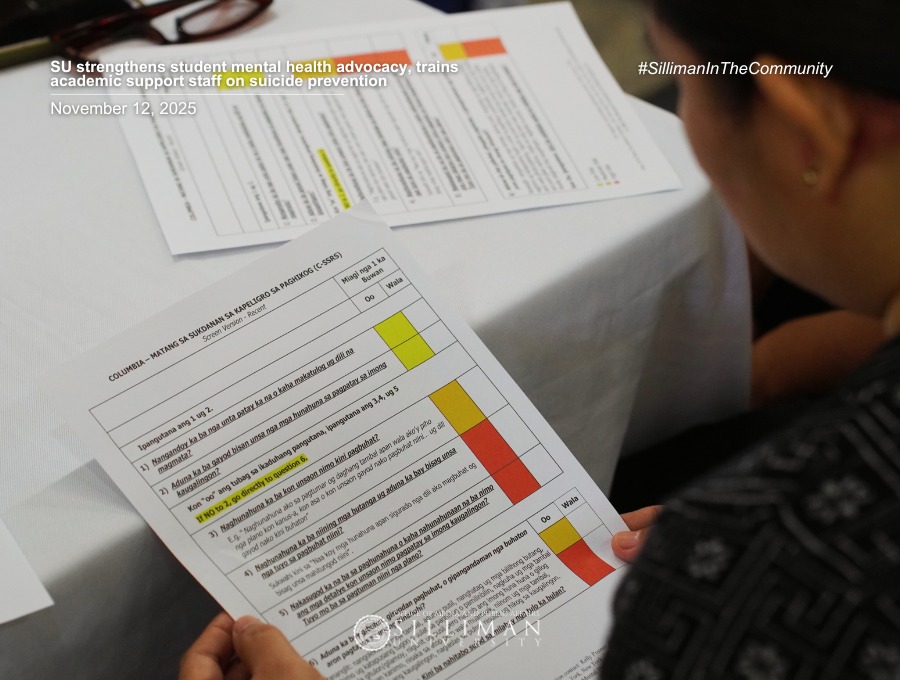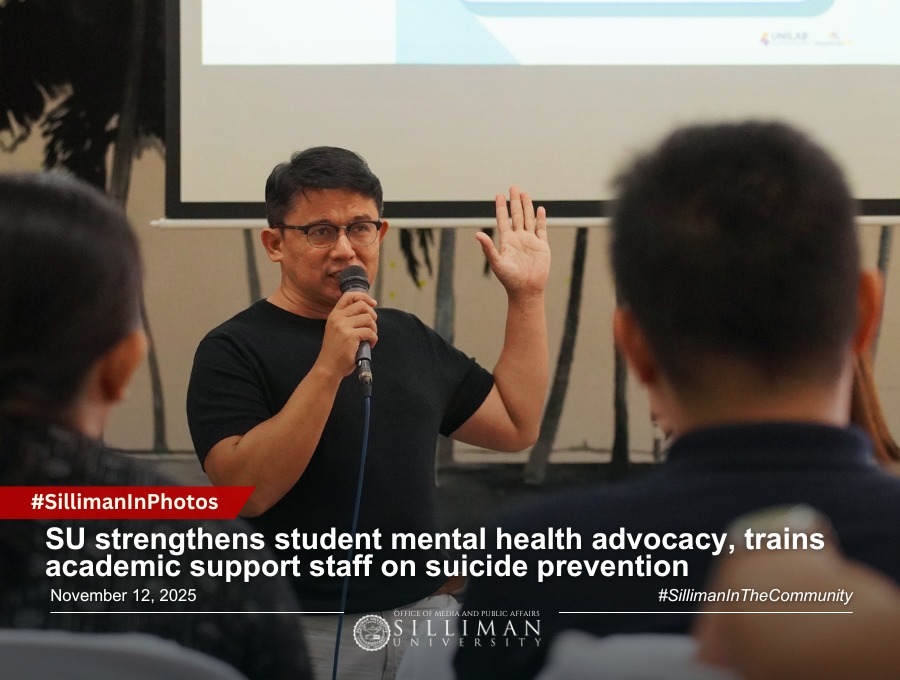
SU strengthens student mental health advocacy, trains academic support staff on suicide prevention

Silliman University (SU)’s Guidance and Testing Division (GTD), headed by Dr. Jaruvic C. Rafols, in partnership with the Organizational Development–Human Resource Management (OD-HRM), led by Dr. Lourdes Angela F. Piñero, spearheaded the “RACE Against Suicide: A Gatekeeper Training for Suicide Prevention in Schools” on November 12, 2025, at Silliman Hall.
With support from UNILAB Foundation, Inc., HeadsUP PH, and the Philippine Guidance and Counseling Association (PGCA), the workshop introduced SU’s academic support staff to the RACE Against Suicide Toolkit, a structured intervention model designed to equip academic staff with the skills to manage students at risk for suicide.
In her message, Piñero underscored that the event was “more than just another activity” but a meaningful step toward “creating a community and culture of empathy, hope, and compassion.”
She noted that as staff members who directly interact with students, they serve as the first points of contact for those who may be struggling.
“This training is an opportunity to reaffirm our commitment to making Silliman University a safe, supportive, and caring space for everyone, especially our students,” Piñero said, encouraging attendees to be “kinder, more aware, and more courageous in reaching out to those who need help.”
RACE stands for Recognize, Assess, Convince, and Entrust. It is a four-step approach to identifying warning signs, evaluating risk through the Columbia-Suicide Severity Rating Scale (C-SSRS), encouraging help-seeking behavior, and connecting learners with mental health professionals.
Rafols, who also serves as PGCA–Peer Organizations of the Philippines (POP) president, shared the background and purpose of the RACE program, noting that it was developed in response to alarming national data on student suicide.
Addressing the participants, Rafols explained, “You are among the first points of contact for our students. You see them daily, interact with them, and often notice when something is wrong. This training empowers you to recognize those signs and connect them with help before it’s too late.”
Held in two sessions, the introductory workshop featured lectures and video presentations on Module 1: Basic Skills, emphasizing the crucial role of academic support staff in suicide awareness and prevention.
Through the module, academic support staff learned to identify suicide and self-harm risks, recognize warning signs, assess levels of danger using the six-question C-SSRS Screen, and apply immediate first-aid techniques for at-risk individuals.
